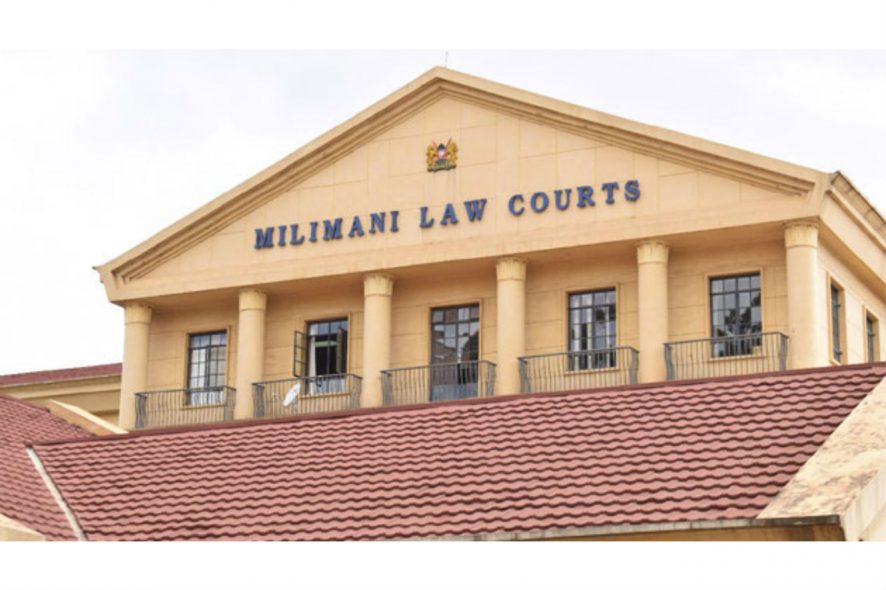Kenya of High Court, Nairobi: A Full Bench of Roselyne Aburili, E.C. Mwita and John M. Mativo, JJ. dismissed a petition regarding the removal of the ban on same-sex relations.
The petitioner had challenged the constitutionality of Sections 162 and 165 of the Penal Code, 1930 which prohibited unnatural offences in the form of carnal intercourse against the order of nature and indecent practices between males, whether in public or in private. The petitioners contended that the two provisions violated the right to privacy and dignity of the Kenyans guaranteed under the Constitution of Kenya as it made the Lesbians, Gay, Bisexuals, Transgender, Intersex and Queer (LGBTIQ) community in Kenya perpetually exposed to risk of arrest, prosecution, denial of liberty, intimidation and mistreatment. The impugned penal provisions were stated to be violative of Article 27 (equality and freedom from discrimination), Article 28 (human dignity), Article 29 (freedom and security of the person), Article 31 (privacy), Article 32 (freedom of conscience, religion, belief and opinion), Article 43 (highest standard of health) and Article 50 (the right to fair hearing).
The petitioner also argued that the petition neither concerns same-sex marriage, nor does it seek to legalize same-sex marriage; and, if successful, it will not have the effect of mandating or requiring Kenya to recognize same-sex marriage. He maintained that the petition only challenged the criminalization and severe punishment provided under the criminal law for the fundamental and inborn characterization of their sexual orientation.
The counsel for the petitioners argued that Section 162 of the Penal Code did not define the phrases ‘unnatural offences’, ‘against the order of nature’; and it was unclear whether the phrases meant sexual intercourse or include oral, anal, vaginal sex, or whether they include any other contact with the genital organ of another person. Regarding Section 165 of the Code, it was submitted that the phrases ‘indecency with another male person’ and ‘any act of gross indecency with another male person’ were unclear. The counsels placed relied on the cases of US, UK, Ireland, South Africa, and also on Indian cases Naz Foundation v. Govt. (NCT of Delhi), (2016) 15 SCC 619, decided by the Delhi High Court and Navtej Singh Johar v. Union of India, (2018) 1 SCC 791 decided by the Supreme Court of India, where the constitutionality of Section 377 of the Indian Penal Code, 1860 was under challenge. The said Section 377 was similar to the disputed Sections herein and was also a colonial-era law that criminalized homosexual acts as an unnatural offence. The counsel also stated that many other countries around the world had decriminalized homosexuality.
The Court opined that the phrase ‘carnal knowledge’ had been judicially defined in Gaolete v. State to mean “penetration through the anus that makes the intercourse ‘against the order of nature’ and therefore provides the other element of the offence.” It was further observed that ‘unnatural offence’ was defined in Law Dictionary; and ‘indecent act’ was defined under Section 2 of the Sexual Offences Act, 2006. Thus, the Court refused to strike down the impugned provisions as unconstitutional on the basis of ambiguity and vagueness, opining that the impugned phrases had been clearly defined in law dictionaries and in a catena of judicial pronouncements.
While dealing with impugned provisions’ consonance with Constitution, it was opined where there is a legitimate reason, then, the conduct or the law complained of cannot amount to discrimination. It was held that the impugned provisions apply equally to heterosexuals and was not targeted at a particular community (LGBTIQ herein).
The Court further held that petitioners had not produced any tangible evidence to support the alleged violation of the Constitution. It was opined that he who makes an allegation, has the onus to prove every element constituting his or her cause of action, and this includes sufficient facts to justify a finding that his rights have been violated.
The Court opined that the foreign judgments relied on in support of their case by the petitioners, were only of persuasive value and caution must be exercised while placing reliance on foreign jurisprudence in cases alleging infraction of Constitutional rights. The Court observed that decriminalizing homosexuality would pose a threat to the institution of marriage protected under Article 45 of the Constitution of Kenya, which provided that family was a natural and fundamental unit of society and a necessary basis for social order, and shall enjoy the recognition and protection of the State; and, that, “every adult had a right to marry a person of the opposite sex, based on the free consent of the parties.” Hence, the contention that the petitioners do not seek recognition of same-sex marriages, did not guarantee the authenticity of the institution of marriage as adopted by the Kenyan society.
In view of the above, the Court upheld the constitutionality of the impugned penal provisions.[EG v. Attorney General, Petition No. 150 of 2016, decided on 24-05-2019]


